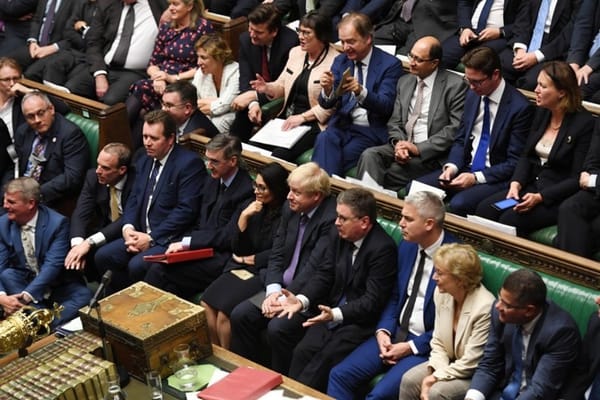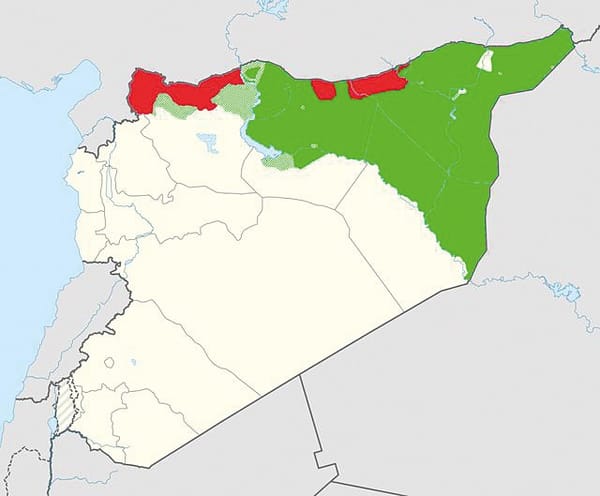Understanding the 2019 Canadian Election
Thoughts and analysis on Trudeau’s minority government loss from an Authentic Canadian

Last week Justin Trudeau managed to claw his way to a minority government in an election which saw him lose his 2015 sweeping majority and came after a term that had few clear wins and was marred by controversy. There was a clear regional divide in election results, with a complete loss of Liberal (Trudeau’s party) seats in the Western provinces of Alberta and Saskatchewan (dubbed ‘wexit’) and a surge in Bloc Quebecois (a Quebec independence party) support, with the party attaining 30 seats from 10 in 2015 and supplanting the NDP as the secondary opposition in parliament.
As the second largest country in the World, Canada naturally has a diverse and fairly disparate electorate. For example, the Greater Toronto area (GTA), where 18.81% of the population of Canada live has 43 ridings (the equivalent of constituencies) whereas the 2.1 million sq km Arctic territory of Nunavut only has one. This naturally means that metropolitan areas have the largest amount of clout in the federal elections due to increased population density. Trudeau’s liberal party gained all but three ridings in the GTA - whilst historically a local majority of this scale would have gained him a federal win, the gains of Bloc Quebecois and the Conservatives prevented a majority.
The needs of the Canadian electorate as a whole are incredibly diverse, a product of a multitude of factors including geography, industry and the history of the province and its people. Those in Nunavut are at the forefront of the effects of climate change, and have an extortionately high cost of living. Blue collar workers in the western provinces where Trudeau performed so poorly view environmental policy as squandering the plentiful oil sands and resources of the country, at the expense of their jobs (this animosity links back to Trudeau’s father, who in 1973 asked provinces to freeze oil prices, making them unable to sell higher prices). First Nations Canadians (indigenous Canadians) contend with a lack of action following the investigation into missing and murdered indigenous women that resulted in the investigating commission calling the increased rate of homicide of indigenous women tantamount to genocide. Trudeau mandated the missing and murdered women inquiry, but has done little to act on the 231 ‘imperative changes’ it concluded with. The use of the term genocide has also proved contentious for Trudeau, who declined to endorse that aspect of the report, yet used the term in a speech to describe the issue.
The production of the TMX oil pipeline is demonstrative of many of the geographical and cultural conflicts in Canadian politics. If it is not built, the province of Alberta (which already has unemployment above the national average) is forecast to go into recession. However building a trans-national pipeline is counter to the environmentalist image Trudeau wishes to portray to those in metropolitan areas such as Montreal and Vancouver, as well as the wider World. The production of the pipeline also places Trudeau in further contempt with the First Nations community, who would be posed to lose out significantly in terms of land and disruption in its construction, a further blow to Trudeau’s credentials and promises to
So what of the Bloc Quebecois surge? Quebec is a province that is traditionally subject to a large amount of swing, however the extent of the Bloc victory was amongst the biggest surprises of the election. The province has a degree of diplomatic representation, with offices in various countries and separate representation in Canadian delegations. In 1995 a referendum on Quebec having a sovereignty agreement (a step below outright independence) was narrowly defeated, the culmination of years of constitutional conflict. Whether the bloc surge indicates increased public desire for independence is unclear - the main cities of Quebec City and Montreal remained Conservative and Liberal respectively, and given that many seats were gained from the NDP, whose stake in the province has been dwindling for the past 3 federal elections, the gains may be more complicated. Recent polls suggest that 82% of quebecers believe that the province should remain in Canada, and the Bloc campaigned primarily on environmental and other issues unrelated to separatism. So all indicators suggest there won’t be a secession anytime soon.
This election is also the first since a landmark supreme court ruling earlier this year that allows all Canadian citizens abroad who were previously resident in the country to vote in their old riding, no matter how long they have lived away from Canada. Given that there are ~3 million Canadian citizens abroad, this could potentially represent a large minority of the electorate. However the impact of this ruling is not yet and not set to be clear, as expats are not grouped as a voting bloc, and the Canadian government has not published any data on the number of expat voters.
In short, no Canadian Prime Minister can win over everyone - there is a complex balance to be made in a country that is simultaneously rich in fossil fuels and melting polar ice caps, and is marred by the legacy and artefacts of colonialism, from the state mandated cultural genocide of native peoples to the continuing battle for Quebec independence. Trudeau has thus far been lacklustre in majority government, and his reelection has produced a country politically divided. Let’s see what he can do in the next term.







